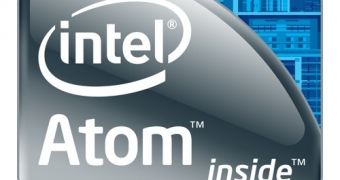2012 is almost over, and Intel has once again failed to make the slightest dent in ARM's hold on the mobile device market, due to its central processing units being simply too power hungry.
There is one main reason why Intel has thus far failed to steal some of the CPU market share on the mobile device market: its CPUs just don't match ARM in terms of performance-per-watt.
The latest Atom processor, Clover Trail, made an admirable effort at catching up at least a bit in that area, even managing 10-hour battery life in some devices.
ARM is still well ahead as far as power efficiency goes, however, and it is not as though ARM Holdings is patiently waiting for its rival to match it.
In fact, even as it continues to improve its architecture, the Cortex line in particular, it has been working on a counter strategy as well (the PC/server-ready ARMv8 architecture with 64-bit support).
At this point, the only chance Intel has of becoming in any way relevant on the smartphone front is to somehow move its mobile CPU R&D forward faster.
According to Digitimes, this is exactly what will happen. Intel hopes to make another big push around the middle of 2013, and will accelerate development of low-power chips, until it finally removes ARM's efficiency advantage.
It won't be the Bay Trail series. Those Atom processors are scheduled for release in 2014, two years from now.
That leaves the Valleyview single-, dual- and quad-core central processing units featuring 22nm Silvermont cores and 4-7 times better GPU performance.
Next year, Intel will release the Haswell microarchitecture as well. Between them and Microsoft's Windows 8, x86 chips may just start to give ARM a challenge.
Ironically, if Chipzilla does succeed in this endeavor, it will happen just after Paul Otellini retires. Maybe there is substance to those rumors about the lack of mobile CPU progress being the cause.

 14 DAY TRIAL //
14 DAY TRIAL //